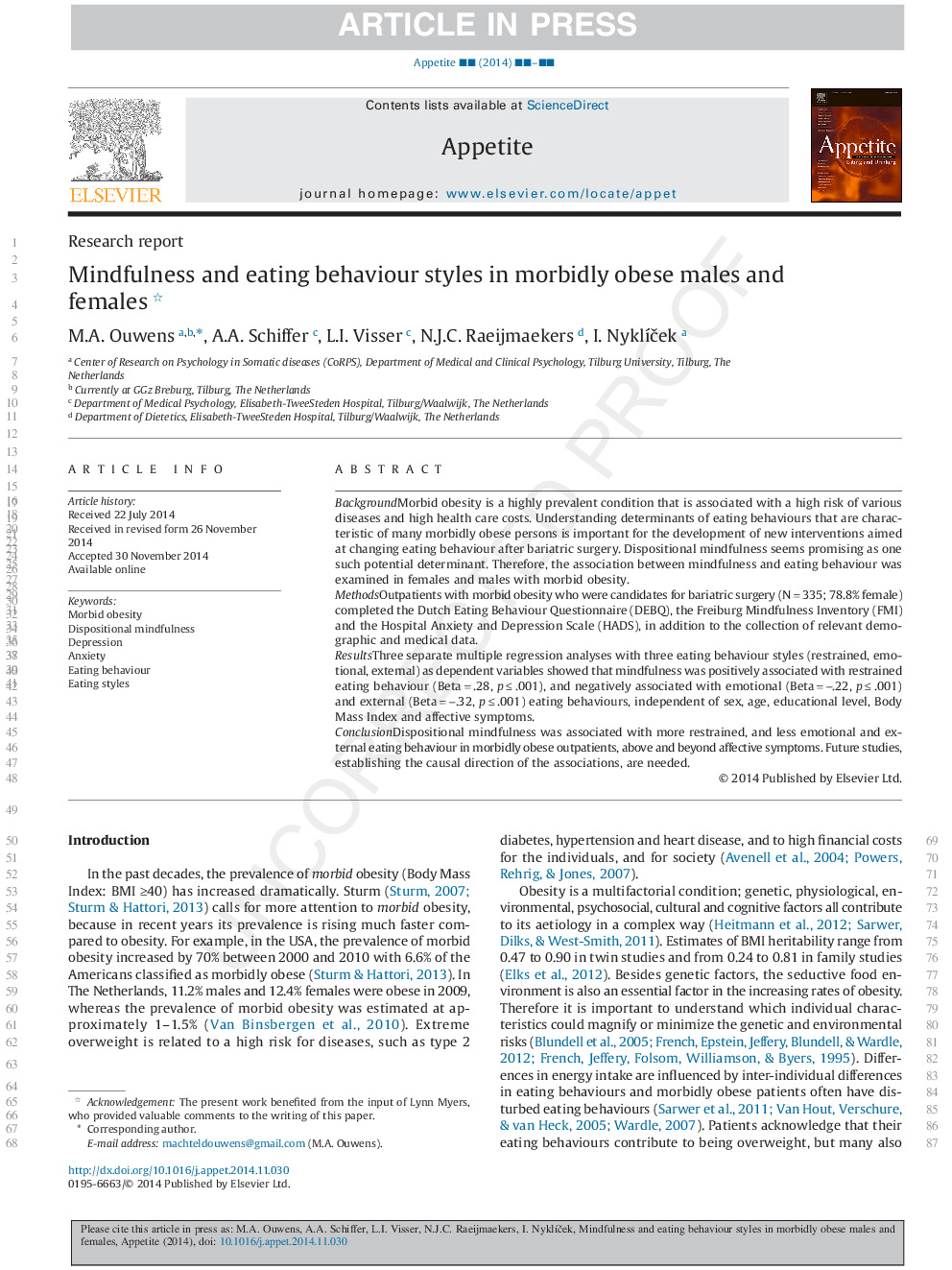| Article ID | Journal | Published Year | Pages | File Type |
|---|---|---|---|---|
| 7309124 | Appetite | 2015 | 6 Pages |
Abstract
Background: Morbid obesity is a highly prevalent condition that is associated with a high risk of various diseases and high health care costs. Understanding determinants of eating behaviours that are characteristic of many morbidly obese persons is important for the development of new interventions aimed at changing eating behaviour after bariatric surgery. Dispositional mindfulness seems promising as one such potential determinant. Therefore, the association between mindfulness and eating behaviour was examined in females and males with morbid obesity. Methods: Outpatients with morbid obesity who were candidates for bariatric surgery (Nâ=â335; 78.8% female) completed the Dutch Eating Behaviour Questionnaire (DEBQ), the Freiburg Mindfulness Inventory (FMI) and the Hospital Anxiety and Depression Scale (HADS), in addition to the collection of relevant demographic and medical data. Results: Three separate multiple regression analyses with three eating behaviour styles (restrained, emotional, external) as dependent variables showed that mindfulness was positively associated with restrained eating behaviour (Betaâ=â.28, pââ¤â.001), and negatively associated with emotional (Betaâ=ââ.22, pââ¤â.001) and external (Betaâ=ââ.32, pââ¤â.001) eating behaviours, independent of sex, age, educational level, Body Mass Index and affective symptoms. Conclusion: Dispositional mindfulness was associated with more restrained, and less emotional and external eating behaviour in morbidly obese outpatients, above and beyond affective symptoms. Future studies, establishing the causal direction of the associations, are needed.
Related Topics
Life Sciences
Agricultural and Biological Sciences
Food Science
Authors
M.A. Ouwens, A.A. Schiffer, L.I. Visser, N.J.C. Raeijmaekers, I. NyklÃÄek,
